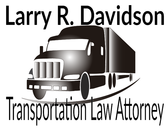|
If you are an attorney representing a motor carrier being sued on a loss and damage claim, the conventional wisdom is to get the case in federal court if at all possible. There are several factors in the mix to reach that conclusion. One factor is the perception that your motor carrier client won't get homered in federal court, that federal courts will not favor the local business over your out of state client. One would like to think that the scales of justice would not permit one party to be preferred over another party simply due to local residency, but the real world frequently doesn't work that way.
Another factor is that the federal courts usually have more resources, which translates to having staff to assist a judge with tasks such as research, drafting of opinions, that sort of thing. Contrast that with state courts which are often times strapped for personnel and support systems. Federal judges frequently have the assistance of law clerks and other personnel who can assist in ferreting out legal arguments, and therefore the federal court decisions are often based upon independent analysis. State court judges are often times left to figure things out for themselves, so they have to rely upon lawyers to educate them. And let's face it, sometimes the lawyer gets it wrong, or maybe tells the judge the wrong thing, which results in a bad decision. This case comes to us by way of a New Jersey federal district court. Since federal law usually applies to matters involving interstate transportation, it's all the same, or supposedly so, whether we're talking west coast, east coast, or somewhere in between. It should be noted, however, that there are 11 different federal circuits (Oregon is in the 9th Circuit), and that sometimes there is a difference of opinion between the circuits on various issues. Still, even where there is a difference of opinion amongst the circuits, the courts nevertheless still apply their version of federal law; they do not use state law to guide their disposition of the case.
The case involved a shipment of cheese, purchased by Trader Joe's, transported from origin in New Jersey to destination in California. The vendor hired a carrier which in turn hired another carrier to perform the transportation service. The Master Vendor Agreement between the vendor and the buyer, Trader Joe's, provided Trader Joe's with the right to reject the shipment at destination if the temperature readings exceeded 40 degrees. There were two separate temperature reading devices, a TempTale provided by the seller and a Thermo King WinTrac 4 provided by the carrier. Sure enough, both devices showed that the temps exceeded 40 degrees during most of the time of transport. Trader Joe's nevertheless only rejected 11 out of the 17 pallets. |
Larry R.
|

 RSS Feed
RSS Feed